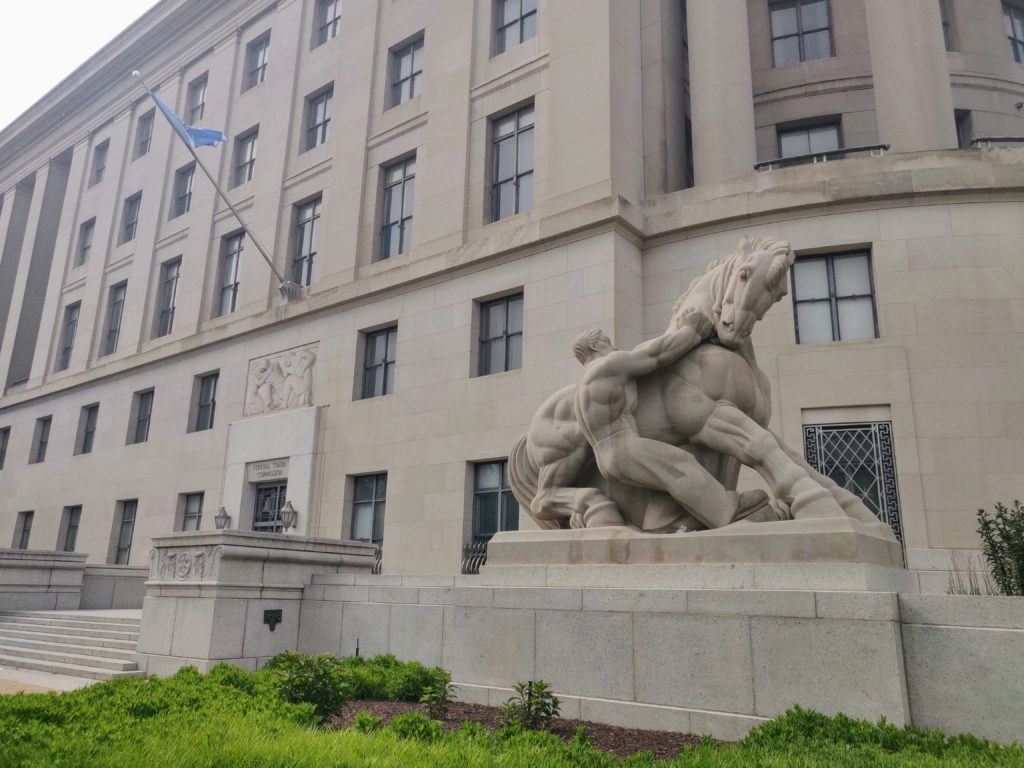ATR Submits Comments Urging FTC To Keep Bipartisan Limits On Antitrust Enforcement Authority
By: Tom Hebert
Americans for Tax Reform, the Open Competition Center, and Digital Liberty today submitted comments to Federal Trade Commission Chair Lina Khan urging the Commission to leave a 2015 bipartisan agreement in place that limits the FTC’s antitrust enforcement authority.
Section 5 of the FTC Act outlaws “unfair methods of competition or in commerce” (UMC), but does not list specific business practices that fall under the UMC definition. Instead, the statute allows the FTC to make that determination on a case-by-case basis.
The bipartisan 2015 statement limits the FTC’s “standalone” UMC authority in three crucial ways when addressing anticompetitive conduct that violates the spirit, if not the letter, of the Sherman and Clayton Acts.
Revoking this important agreement will send two troubling signals. First, that the FTC is moving towards a European-style antitrust approach that props up inefficient competitors and disregards consumer harm. Second, that the FTC is actively working to shed all limits on its authority when it comes to antitrust enforcement.
For these reasons, ATR, OCC, and Digital Liberty urge the FTC to leave the 2015 bipartisan statement of principles in place.

You can read the full letter here or below.
The Honorable Lina Khan
Chair, Federal Trade Commission
600 Pennsylvania Avenue, NW
Washington, DC 20580
Re: Comment on the Federal Trade Commission’s Possible Revocation of the “Statement of Enforcement Principles Regarding ‘Unfair Methods of Competition’ Under Section 5 of the FTC Act”
Dear Chair Khan,
We write to express concern over the Federal Trade Commission’s vote to revoke the “Statement of Enforcement Principles Regarding ‘Unfair Methods of Competition’ Under Section 5 of the FTC Act” at the July 1, 2021 Open Commission Meeting. If the Commission rescinds this bipartisan agreement, it would be a significant blow to consumer welfare and will hinder our economic growth as we recover from the COVID-19 pandemic.
Section 5 of the Federal Trade Commission Act outlaws “unfair methods of competition or in commerce.” Section 5 does not list specific business practices that qualify as unfair methods of competition (UMC), instead leaving that determination to the FTC to evaluate on a case-by-case basis.
The Statement of Enforcement Principles is designed to limit the FTC’s “standalone” UMC authority when addressing anticompetitive conduct outside of the scope of the Sherman or Clayton Acts. The agreement was approved by the FTC in 2015 in a 4-1 vote, with all three Democratic commissioners voting in support.
The agreement articulated the limits on the FTC’s UMC authority in three ways.
First, the agreement emphasized the agency’s commitment to prioritizing consumer welfare when applying antitrust law. The long-held consumer welfare standard has anchored antitrust law for over four decades. Under the standard, enforcement action is only taken if consumers are being harmed through tangible effects like higher prices, decreased quality, or lack of choice. The consumer welfare standard prevents judges and regulators from using antitrust law as a vehicle to advance unrelated social priorities.
Second, the statement said that Section 5 enforcement should target “harm to competition or the competitive process,” but must consider whether there is a procompetitive justification for the conduct in question and whether it results in a countervailing benefit to consumers or competition. This is a key element of antitrust law under the consumer welfare standard, which protects the competitive process and consumers instead of protecting individual competitors in a marketplace. Robust competition among companies delivers better prices and better choices for all Americans.
Third, the agreement states that the FTC would be less likely to challenge business conduct as an unfair method of competition if “…enforcement of the Sherman or Clayton Act is sufficient to address the competitive harm arising from the act or practice.” This is an important limit that ensures that the FTC exercises its standalone UMC authority only when business conduct violates the spirit, if not the letter, of the Sherman or Clayton Acts.
Rescinding this bipartisan agreement would send two troubling signals. First, that the FTC is moving towards a European-style antitrust approach that props up inefficient competitors and disregards consumer harm. Second, that the FTC is actively working to shed all limits on its authority when it comes to antitrust enforcement.
Taken together, these changes will hamper economic growth as we attempt to rebound from the pandemic. Companies fearful of predatory antitrust litigation would pull their punches when competing with rivals, reducing choice and access to goods and services for shoppers across the country. Bureaucrats would win, American shoppers would lose.
For these reasons, we urge the FTC to leave the 2015 Statement of Section 5 Enforcement Principles in place.
Sincerely,
Grover Norquist
President, Americans for Tax Reform
Tom Hebert
Executive Director, Open Competition Center
Katie McAuliffe
Executive Director, Digital Liberty
